
Developer: Crossingstar Studio, 42 Foundation
Publisher: 2P Games
Platform: PC
Tested on: PC
Shadowplay: Metropolis Foe – Review
Making a game is a hard task; it requires lots of time, knowledge, and funding. Doing so as an independent developer is even harder, lacking the latter and having to cover in other ways. Due to this, it isn’t common for projects to end up being abandoned before reaching their potential. Such is the case of Shadowplay: Metropolis Foe, which was released with a good base but was ultimately left incomplete.
Story
As is common for roguelikes, Shadowplay’s story is little more than a setting for the game to take place in. It begins when the members of the vigilante group Shadowplay are conscripted by a mysterious A.I. to take part in disaster simulations. Together, the team will train and prepare in these simulations to protect the real city, should anything befall it.
Due to the incomplete state of the game, the story only appears during the tutorial segment and as a brief paragraph when selecting each of the two missions. Similarly, the characters themselves have little to no personality or development due to the little time spent with them.
Graphics
The game’s graphic style is definitely one of its strongest parts, featuring a colorful 2D style of the cyberpunk aesthetic. While not particularly unique for the genre, the character and environmental designs featured in the game are nonetheless good and unique from each other. That said, the game does have a tendency to reuse the same handful of enemies and bosses over and over, regardless of area or difficulty.
Sound
Shadowplay’s sound design is generally alright although it is nothing outstanding. Both the SFX and soundtrack are serviceable but not memorable, with a complete lack of voice acting during the few existing dialogues.
Gameplay
The gameplay in Shadowplay: Metropolis Foe belongs to the roguelike genre, more specifically to the deckbuilding subsection, similar to others such as Slay the Spire. During each playthrough, players will be tasked with creating a deck capable of defeating the enemies encountered along the way, until they reach the top floor.
Before beginning each run, players will create a team of four characters, half of which will be randomized, and each will have their own unique cards. Out of the manually selected ones, players will be able to assign a leader, who will provide a piece of equipment and a unique effect. The characters in the team will also determine which card-types players will be able to add to the deck, based on their own affinity.
The card variety featured in the game is quite ample, with plenty of unique character cards and four different types: Omni, Force, Tekk and Crypto. While these types don’t really affect what the cards can do, they do set a general archetype, such as Crypto cards tending towards providing the player with dodge buffs and debuffing enemies.
This variety is one of the few things the game shines at, allowing for complex card combos and flexible builds. The plethora of effects that may be applied to enemies or the player alter the game significantly and allow for a whole layer of depth. Unluckily, most of these mechanics are not properly explained at the beginning of the game, leaving players to figure them out alone, although doing so is not the worst experience.
In order to strengthen themselves, players will also be able to pick up items throughout their journey, each of these providing passive bonuses in combat. Items may be obtained at shops or after defeating elite enemies and bosses, all of them generally being useful but a particular few being outright game-breaking. Additionally, players will also be able to upgrade their cards at rest points, reducing their costs and improving their effects.
Each of the areas in the game is segmented into different nodes featuring a variety of events, out of which the most common will be battles, alongside shops and rest points. Besides those, players may also encounter choice based events, where by either answering appropriately or rolling a die they’ll be able to obtain items or cards. That said, those events where dice rolling is involved tend to be poorly balanced, leading to impossible challenges or incredibly simple ones.
The aforementioned poor balance of the game is sadly a common theme that plagues the entire game. A few examples of this could be infinite damage card combos, enemies capable of one-shotting the player, holding tens of cards at once, and more. While some of these issues might be fun for the player, they can lead to extremely unfair situations or for the game to be over before it even properly begins.
Alongside poor balance, Shadowplay is riddled with bugs. While most are rather inoffensive such as tiny texts or words appearing in Chinese, they do pile up to make the gameplay experience rather annoying. Besides this, the game is also rather poorly optimized and may crash at times, although luckily an autosave function is embedded.
Conclusion
Shadowplay: Metropolis Foe is a game filled with potential thanks to its unique mechanics, selection of characters, and the depth it could have achieved. That said, this potential will never develop, due to the state the game was released in, and the confirmation that it won’t be further developed. At a price of €8,19/£7,19/$9,99, it’s rather hard to recommend purchasing the game, although at an extremely deep discount it might be worth giving it a go.
Personal Opinion
“My original impression with this game was that it looked like shovelware: It had plenty of negative Steam reviews, all preview images were untranslated, and it had a somewhat generic theme… Once I went into it, I discovered I was both right and wrong. This game could’ve been great, but its circumstances stopped it. The basics are all here to form a pretty fun deck-builder, but having been abandoned by its developer means it will never become that. As is, the game still provides some amount of entertainment, although this ends after a pair of runs, especially when better (and complete) games are out there.”
Shadowplay: Metropolis Foe - Review,

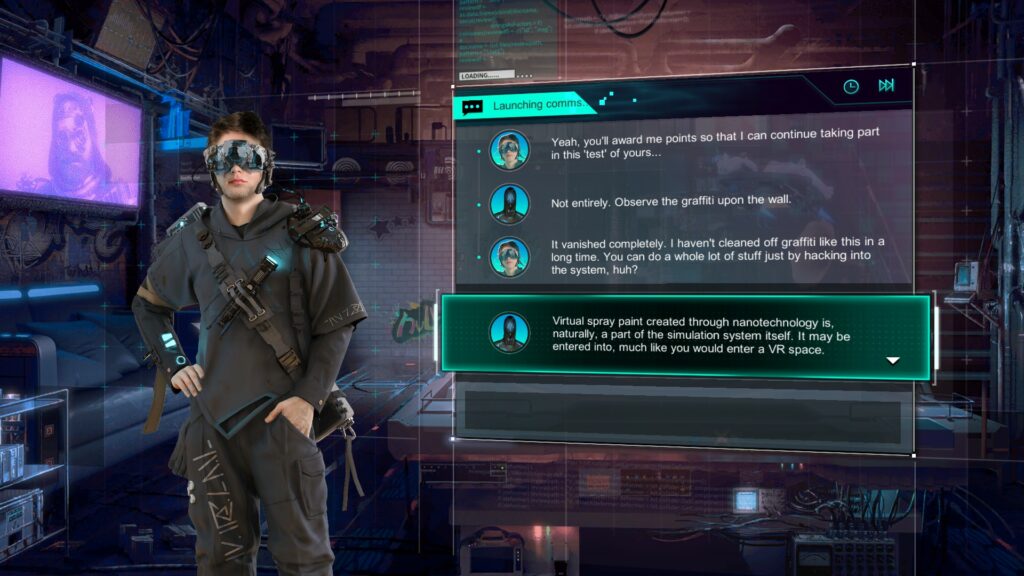
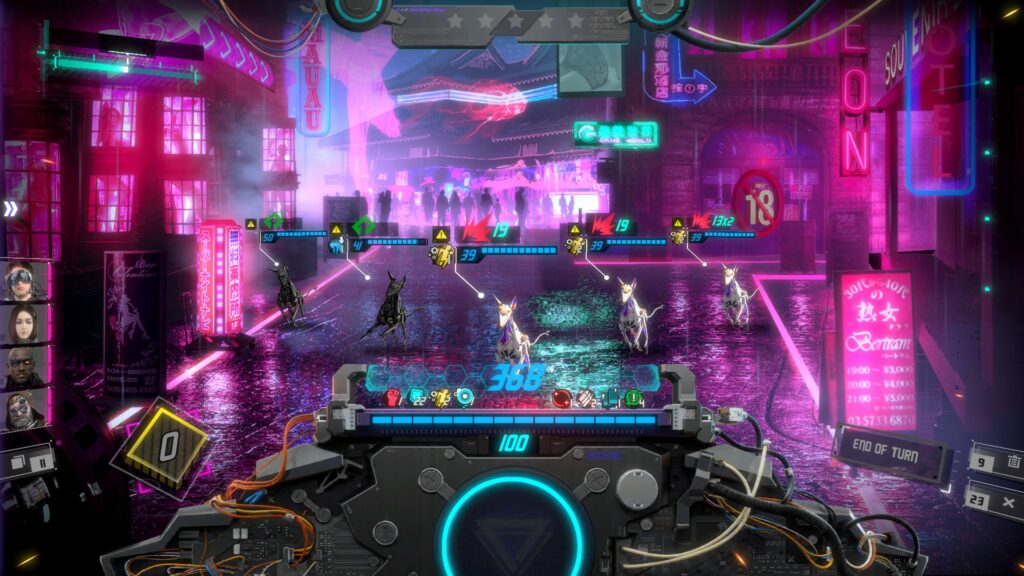

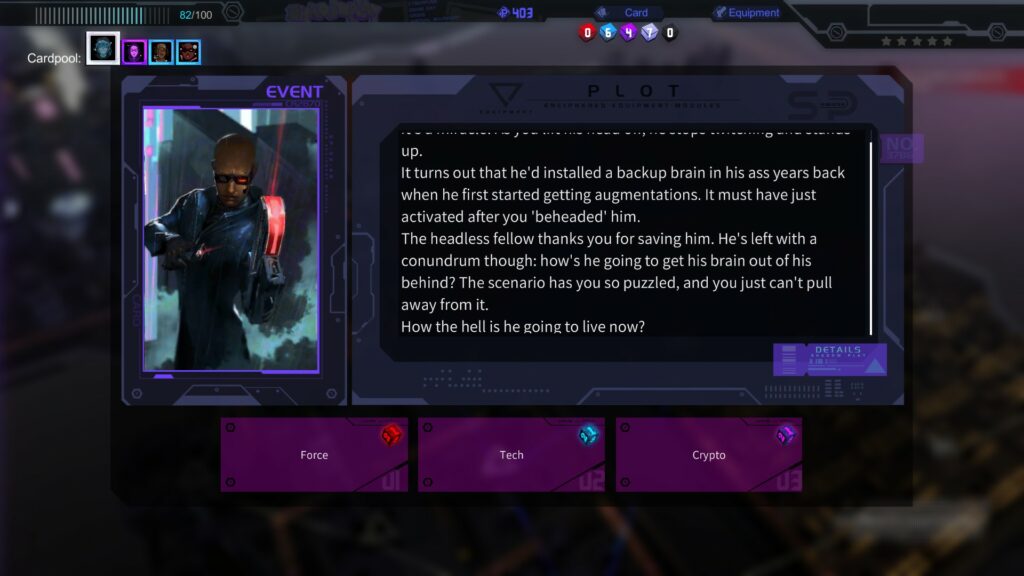
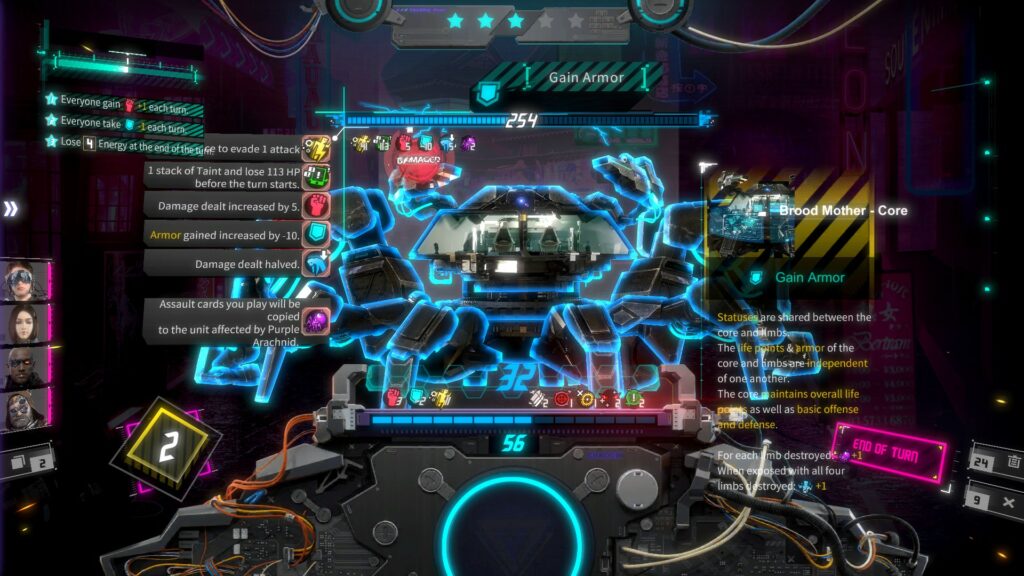
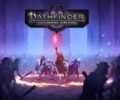



No Comments